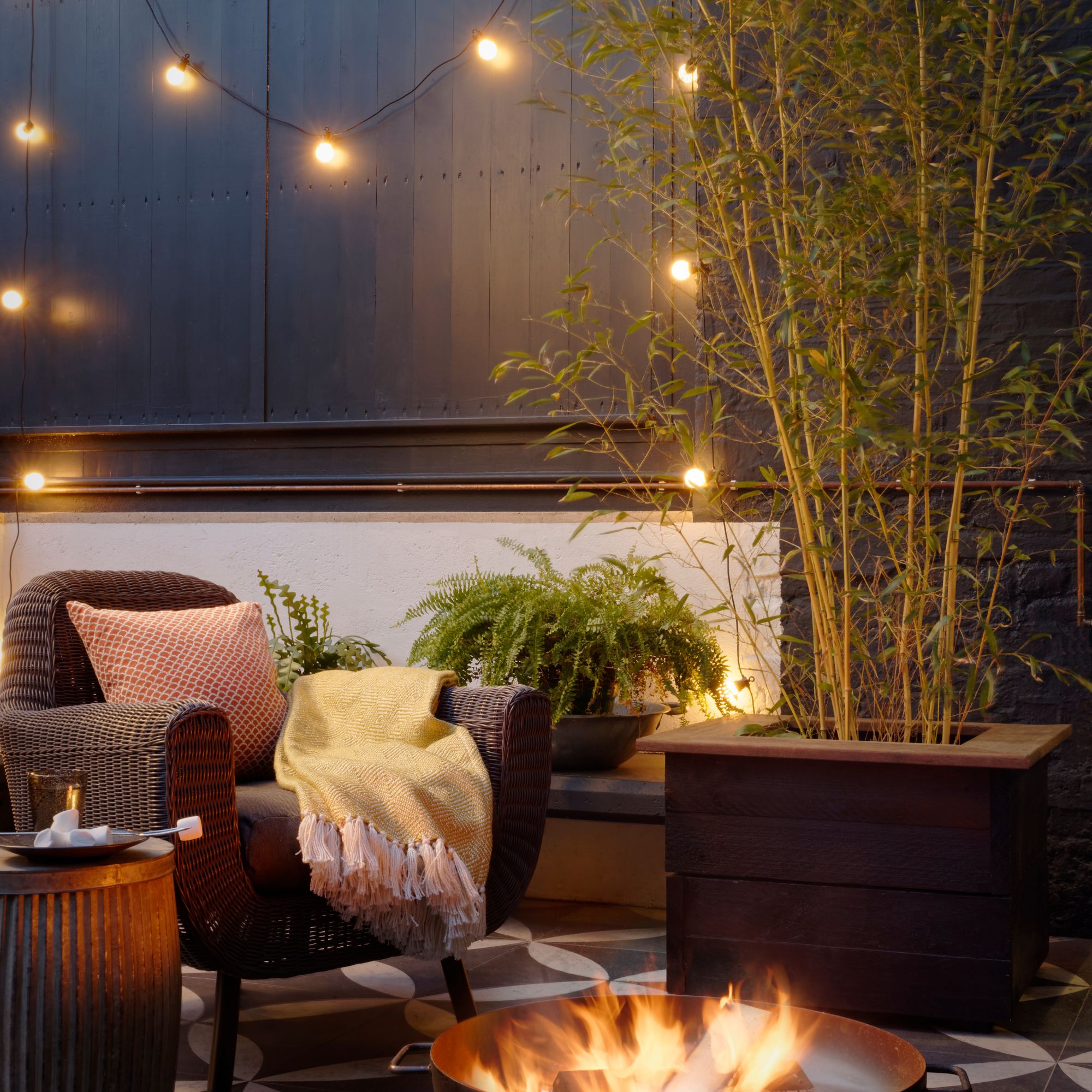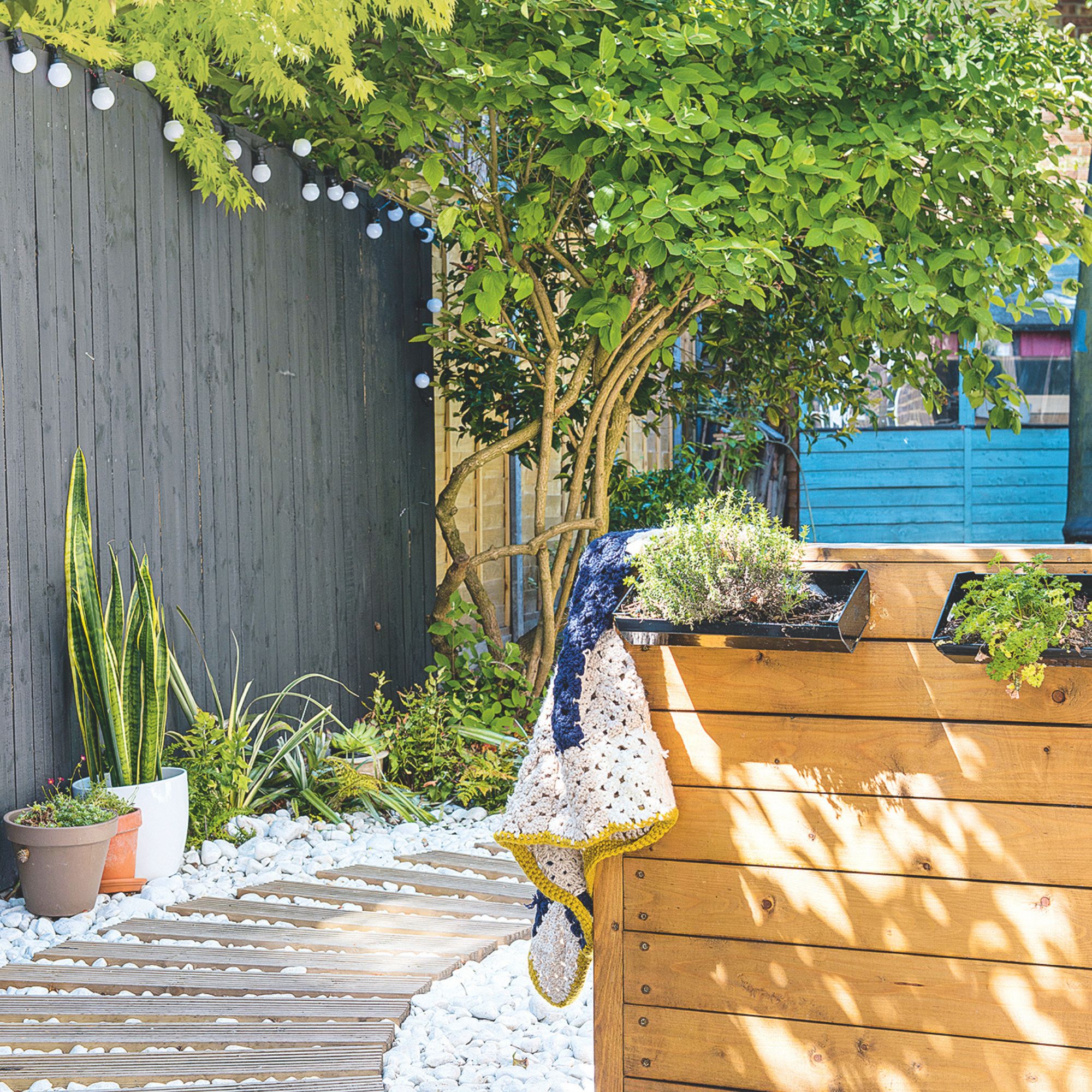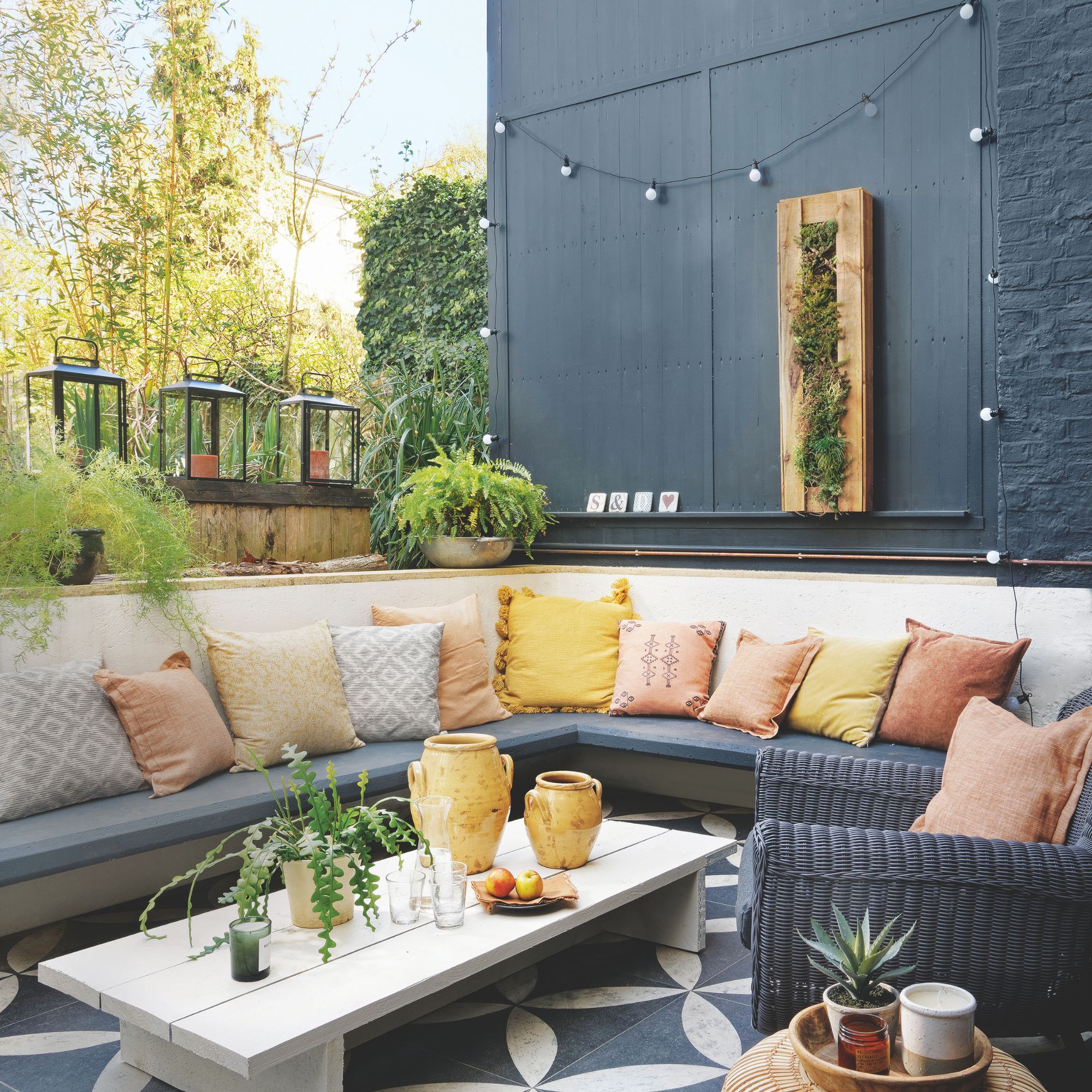
If you’re wondering whether you can put battery-operated lights outside in winter, we can only assume that you want to brighten up your outdoor space during the colder months of the year. We don’t blame you, but choosing the right lights is key.
Of course, there are no bad garden lighting ideas, but there are bad garden lights. And while you may be tempted to opt for solar in the solar vs battery garden lights debate, the lack of sunlight and the general gloominess of the UK means that solar lights can be temperamental in winter. But this isn’t the case with battery-powered lights. In fact, winter is when battery-operated outdoor lights really shine.
As Amy Mason, Director of Product at Lights4fun, explains, ‘Simple to use and easy to install, you can bring a touch of festive magic to almost anywhere in your garden or outdoor space without being limited to the length of a lead wire and the need to access an outdoor plug socket or sunny spot to charge a solar light.’ But can you put battery-operated lights outside in winter? Well, it depends.

1. They need to have the correct IP rating
You may assume that all battery-operated lights are created equal, but that’s not the case at all. To successfully use battery-operated outdoor lights in winter, you need to ensure they are 'outdoor rated' (rather than just for indoor use) and have the correct IP rating.
The IP - or Ingress Protection - rating is essentially how well a bulb is protected from both dust and water. The higher the rating, the better protected it is. You can normally find this information in the specifications online, or on the packaging if you prefer buying in-store.
As Amy advises, ‘All outdoor lights should have a minimum rating of IP44, meaning that they will withstand rainfall and winter frosts throughout the colder months.’
Featuring 50 warm white fairy light LEDs on a green cable, these battery-operated lights are fully waterproof and have an IP rating of 44.
2. You should replace or recharge the batteries regularly

The downside of battery-operated lights is that they’re operated by batteries rather than a free energy source like the sun. This means that you’ll need to stock up on batteries to keep your lights shining over winter.
And while battery-powered outdoor lights are designed to last a long time, the reality is that they don’t last as long as you’d think. The batteries needed to power some outdoor lights will only last three to six hours, while LED options will typically last between one and two days if kept on all the time.
Of course, you can replace your batteries when needed - but an affordable alternative is using rechargeable batteries and a battery charger to keep them full of juice. In some cases, rechargeable batteries can last upwards of five years before needing to be replaced.
Luke Dejahang, Director and Gardening Expert at Crown Pavilions, adds, ‘Using rechargeable batteries designed for low temperatures can help maintain brightness, as standard alkaline batteries often lose efficiency in the cold. It’s also a good idea to routinely check the battery pack for signs of corrosion or wear.’
This charger will charge your batteries in under five hours, and it even comes with four batteries as standard if you don't have any lying around at home.
3. Ideally, put them on a timer
Most modern battery-powered lights now come with a timer. And while you don't have to use it, you should definitely use it if you want to put battery-operated lights outside in winter.
For starters, this will reduce how often you have to replace or recharge your batteries. Plus, this allows you to have better control over your lights. Amy says, ‘With many battery-operated LED Christmas lights now complete with timers, different functionalities and remote control operation, you can simply illuminate with batteries, style, secure in place, selecting the function you require and watch as your space is uplifted at the same time each evening.’
And the less time you leave them on, the more time you’ll have with your battery-powered outdoor lights as they’ll degrade slower.
If you want to brighten up your garden path or even your front porch, these battery-operated lights come with a timer so you can ensure they're turned off before you go to bed.
4. Consider buying LED lights

Light bulbs come in many forms, but LED is generally considered the crème de la crème - especially for outdoor use. Although any type of bulb should be able to brighten up the darker evenings, LED lights can handle cold temperatures better than any other.
LED lights are also more efficient, which means that they’ll use less energy. As a result, you won’t have to charge them as much.
Lastly, LED lights produce very little heat and have a low risk of fire - which is especially important if you’re planning on hiding an ugly garden wall with some lights.
You can't go wrong with festoon lights, and these have LED bulbs for extra efficiency and safety. Plus, they're extremely affordable.
5. Make sure they’re stored properly
Outdoor lights can last for years if you care for them, so if you want to use them each winter, you need to store battery-operated lights properly.
And while you may be inclined to store your outdoor lights in the shed, electrical items and batteries are just two of the things you should never store in a shed over winter.
‘We recommend storing your Christmas lights away in the new year, in a cool dry place and also removing the batteries so that the lights remain in good condition for you to use year after year,’ suggests Amy.
This box has been specifically designed with storing lights in mind and even comes with four removable spools to wrap cables or wires around.
FAQs
Are battery-operated lights safe to leave on?
Battery-operated lights are largely safe to leave on, especially if you buy LED lights. That’s because they emit very little heat and are a low fire risk. You should still be cautious about leaving any lights on, though.
If you can, turn the battery-powered lights off if you’re not home to ensure you can keep an eye on them at all times.
What happens if you use indoor battery-operated lights outside?
If you choose to use indoor battery-operated lights outside, you won’t get to enjoy them for very long as they are not designed to withstand the outside elements.
As a result, water may get into the battery pack and stop the lights from working completely. This will be a waste of your money, as you’ll have to replace them in no time. In more extreme cases, using indoor battery-operated lights outside could cause a fire.







